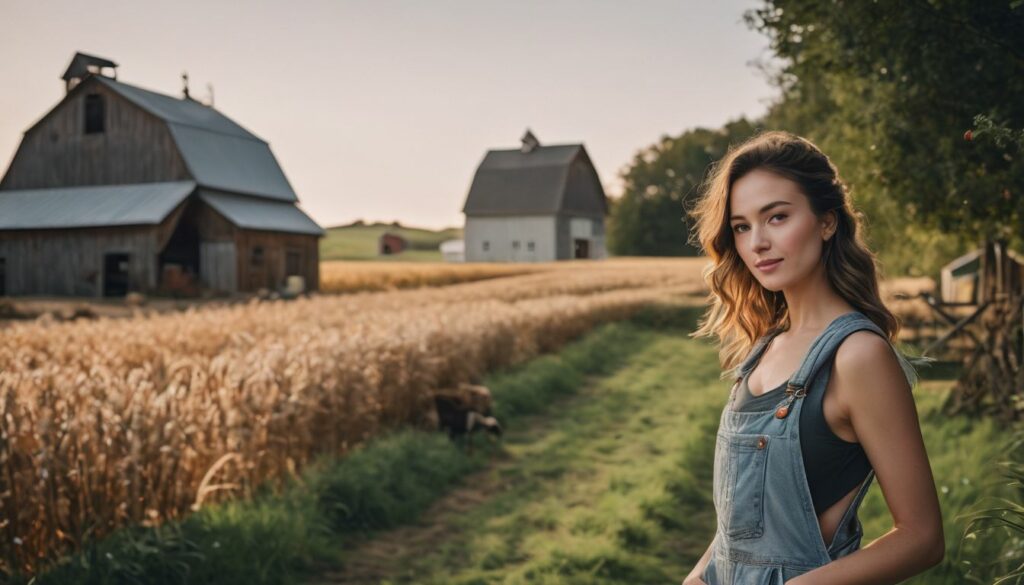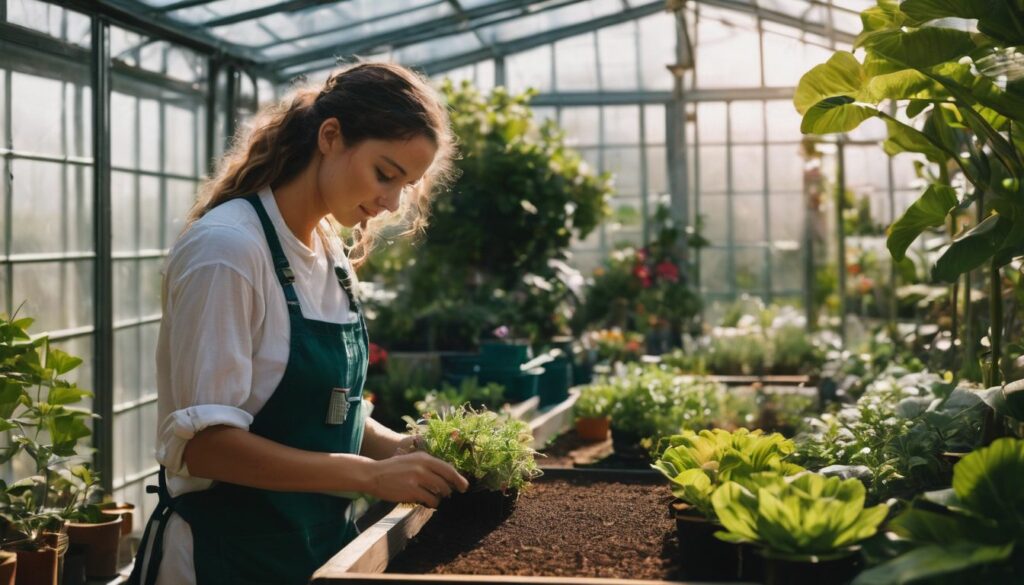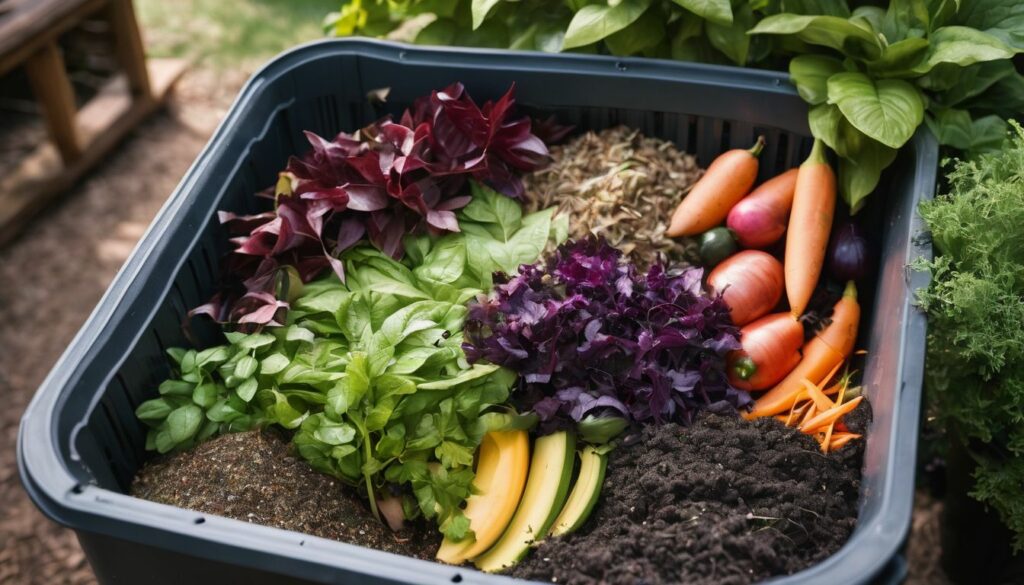Have you ever found yourself daydreaming about transforming that idle patch of land into a charming hobby farm? Believe us, we’ve walked down that road as well! After pouring hours into diligent research and getting our hands dirty in the soil, we’ve crafted the ultimate guide to hobby farming.
Let’s uncover every secret nook and hidden gem of this wonderful venture together – it’s time to bring your dream hobby farm to life.
Key Takeaways
- Hobby farming is a small – scale form of agriculture focused on personal enjoyment, sustainable living, and potentially generating alternative income.
- Traditional farming differs from hobby farming in terms of scale, purpose, technology usage, time commitment, and regulatory requirements.
- Hobby farming offers benefits such as personal enjoyment, sustainable living practices, and the potential for additional income.
- To start a hobby farm, it’s important to consider factors like land size and location, make necessary preparations and considerations,and choose suitable animals and crops.
Understanding Hobby Farming
Hobby farming is a small-scale form of agriculture that focuses on personal enjoyment, sustainable living, and potentially generating alternative income.
Definition and purpose
Hobby farming is a fun way to live close to nature. It’s like normal farming but on a smaller scale. The goal may not be to earn money. Some people do this for fun, or they want fresh food for their family.
They might also enjoy being around animals and plants. Many times, you will find these small farms outside of big cities in the country-side locations. But remember, this is not just about having fun.
People who run these farms take care of the earth and help it stay healthy too!
Differences from traditional farming
Traditional farming involves large-scale agricultural operations where crops and livestock are produced for commercial purposes. Hobby farming, on the other hand, is a smaller-scale form of farming that is usually done for personal enjoyment rather than as a primary source of income.
Unlike traditional farming, hobby farmers often have off-farm jobs and engage in farming activities on a part-time basis.
One key difference between hobby farming and traditional farming is the scale of operation. Traditional farmers typically own or lease larger tracts of land and utilize advanced machinery and technology to maximize productivity.
In contrast, hobby farmers usually have smaller plots of land and may rely on more manual labor or simpler equipment.
Another difference lies in the purpose of the farm. Traditional farms are primarily focused on generating profits through the sale of agricultural products. Hobby farms, however, prioritize personal enjoyment and self-sufficiency.
The main goal for many hobby farmers is to grow their own food or care for animals as a recreational activity.
Categorization by country
Hobby farming can be categorized differently depending on the country you’re in. In the United States, hobby farms are often classified as small-scale farms that are not primarily focused on making a profit.
They are more about personal enjoyment and sustainable living. In other countries, hobby farming may refer to part-time farming or recreational land use. The specific regulations and tax benefits associated with hobby farming also vary from country to country.
It’s important to understand the categorization and rules in your specific location if you’re interested in starting a hobby farm.
Benefits of Hobby Farming
Hobby farming offers personal enjoyment, sustainable living, and an alternative source of income.
Personal enjoyment
I love hobby farming because it brings me so much joy and satisfaction. Taking care of animals and tending to my crops gives me a sense of purpose and fulfillment. It’s incredibly rewarding to see the fruits of my labor, whether it’s harvesting fresh vegetables or raising healthy livestock.
Working on my hobby farm allows me to connect with nature, relax, and enjoy the simple pleasures in life.
Sustainable living
Sustainable living is an important aspect of hobby farming. By practicing sustainable farming methods, we can reduce our impact on the environment and ensure the long-term health of our land.
This includes using organic fertilizers and pesticides, conserving water, and implementing crop rotation to maintain soil fertility. Additionally, hobby farmers can incorporate renewable energy sources such as solar panels or wind turbines to power their farms.
Sustainable living not only benefits the environment but also promotes self-sufficiency and reduces reliance on external resources. It’s a win-win situation for both the farmer and the planet.
Alternative source of income
Hobby farming can be more than just a pleasurable activity – it can also provide an alternative source of income. Many hobby farmers find ways to generate extra money from their farm, such as selling excess produce or eggs, offering agritourism experiences, or even breeding and selling animals.
By diversifying your income streams, you can turn your hobby into a profitable venture while enjoying the benefits of rural living and sustainable agriculture practices. With careful planning and creativity, hobby farming can become a fulfilling and financially rewarding endeavor.
Starting a Hobby Farm
To start a hobby farm, you need to determine the size and location of your land, make necessary considerations and preparations, and choose the right animals and crops. Interested in learning more? Read on!
Determining land size and location
When starting a hobby farm, one of the first things to consider is determining the size and location of your land. It’s important to choose a plot that suits your needs and resources.
Consider factors such as available space for animals or crops, access to water sources, proximity to markets or suppliers, and zoning regulations in your area. Additionally, make sure you have enough room for future expansion if desired.
By carefully considering these factors, you can find the perfect piece of land for your hobby farming adventure.
Necessary considerations and preparations
Before diving into hobby farming, it’s important to consider a few key factors and make necessary preparations. First, determine how much land you have available and the location of your farm.
This will help you decide what type of animals or crops you can accommodate. Next, think about the time and resources you can dedicate to your hobby farm. It’s crucial to keep things manageable and affordable so that your farming experience remains enjoyable.
Lastly, do some research on recommended animals and crops for hobby farming in your area. This will ensure that you choose options that are suitable for your climate and conditions.
Recommended animals and crops
If you’re starting a hobby farm, it’s important to choose the right animals and crops. Here are some recommendations based on your interests and goals. For animals, popular choices include chickens for eggs, goats for milk or meat, and rabbits for meat or fur.
You might also consider raising bees for honey or keeping horses if you have enough land. When it comes to crops, vegetables like tomatoes, lettuce, and cucumbers are great options for small-scale farming.
Fruit trees such as apples, peaches, and berries can provide delicious harvests as well. Ultimately, the choice of animals and crops depends on your preferences and what will thrive in your area.
Maintaining Your Hobby Farm
To maintain your hobby farm, you will need to have the necessary equipment and resources for farming success.
Equipment and resources needed
To start and maintain a hobby farm, there are some essential equipment and resources you’ll need. First, you’ll need basic gardening tools like shovels, rakes, watering cans, and pruning shears for maintaining your crops.
If you plan to raise livestock, invest in appropriate fencing materials to create proper enclosures. Depending on the animals you choose, you may also require feeding troughs or bowls, water buckets or automatic watering systems, and shelter or housing structures.
Additionally, consider purchasing a small tractor or utility vehicle for managing your land efficiently. It’s important to have access to reliable sources of water and electricity as well.
Tips for successful farming
To have a successful hobby farm, there are some important tips to keep in mind. First, it’s crucial to start small and manageable. Don’t overwhelm yourself with too many animals or crops at once.
Start with a few that you can handle and expand gradually as you gain experience.
Second, make sure to do your research on the specific needs of the animals or crops you choose. Learn about their feeding requirements, housing needs, and any health considerations.
This will help ensure their well-being and productivity.
Next, maintain good communication with other farmers or agricultural experts in your community. They can offer valuable advice and support when needed.
Conclusion
In conclusion, “The Ultimate Guide to Hobby Farming: Everything You Need to Know” provides a comprehensive overview of hobby farming. Whether you’re interested in raising livestock or growing your own crops, this guide has all the information you need to get started.
From choosing the right land and equipment to maintaining a successful farm, this guide will help you enjoy the benefits of hobby farming while living sustainably. Start your journey into hobby farming today!
FAQs
1. What is hobby farming?
Hobby farming is small-scale farming for pleasure or part-time. It involves back-to-basics living such as raising livestock, vegetable gardening, and fruit growing at home.
2. How does hobby farming help in sustainable crop growth?
Hobby farming focuses on the homesteading way of life, which supports sustainable crop growth through good land use and eco-friendly practices.
3. Can I raise animals in hobby farming?
Yes! Livestock raising like having land for horses is a big part of the agricultural hobby known as recreational or pleasure farming.
4. Are there any tax rules for hobby farm?
Yes, there are specific tax rules that apply to hobby farms; it’s important to know these when you start your own small-scale farm.
5. Is this guide all I need to know about Hobby Farming?
The Ultimate Guide covers everything you need to know about starting and taking care of a successful smallscale farm from scratch using backtobasics living approach.





